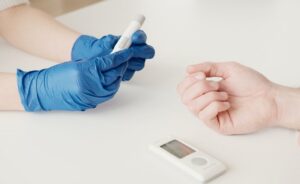Outpatient rehab programs are pivotal in the journey towards recovery for those struggling with addiction. These programs, unlike inpatient rehab, allow individuals to receive treatment while living at home, thereby balancing their everyday responsibilities with the recovery process. The cornerstone of these programs is the use of evidence-based therapies, which are backed by scientific research and have been proven effective in treating addiction. Understanding these therapies can be a guiding light for those considering outpatient drug rehab or for their loved ones seeking the best support.
Evidence-Based Therapies in Outpatient Rehab
Cognitive Behavioral Therapy (CBT)
One of the most widely recognized and effective therapies in addiction treatment is Cognitive Behavioral Therapy (CBT). This form of therapy focuses on identifying and changing negative thought patterns and behaviors. It equips individuals with coping strategies to handle triggers and cravings, thereby reducing the risk of relapse. CBT is especially effective as it can be tailored to meet the unique needs of each individual. For more information on the effectiveness of CBT in addiction treatment, visit this resource.
Dialectical Behavior Therapy (DBT)
Dialectical Behavior Therapy (DBT) is another evidence-based therapy often used in outpatient settings. Originally developed for treating borderline personality disorder, DBT has shown significant success in treating substance use disorders. It focuses on teaching patients skills in mindfulness, emotion regulation, distress tolerance, and interpersonal effectiveness. These skills are crucial in helping individuals understand and manage their emotions without turning to substance use.
Motivational Interviewing (MI)
Motivational Interviewing is a client-centered counseling style that addresses ambivalence to change. It is particularly useful in outpatient rehab because it helps individuals find their internal motivation to change their addictive behaviors. MI is based on the concept that the decision to change must come from the individual, not external pressures. For a deeper understanding of Motivational Interviewing in addiction treatment, this resource offers comprehensive insights.
Family Therapy
Addiction is often termed a ‘family disease’ due to its profound impact on the family unit. Family therapy in outpatient settings helps to repair and strengthen family relationships that may have been damaged by addiction. It provides a safe space for family members to express their feelings, learn about addiction, and develop strategies to support their loved one’s recovery journey.
Group Therapy
Group therapy is an integral part of most outpatient programs. It provides a supportive environment where individuals can share experiences, learn from others, and develop social skills. Group sessions often involve discussions, skill-building activities, and educational presentations about addiction and recovery.
Choosing the Right Outpatient Drug Rehab
Selecting the right outpatient drug rehab is crucial for a successful recovery journey. It’s important to choose a program that offers a range of evidence-based therapies tailored to individual needs. Quality outpatient programs will have skilled therapists and a supportive environment that fosters growth and long-term recovery.
Conclusion
Outpatient rehab programs, with their focus on evidence-based therapies, offer a flexible yet effective approach to addiction treatment. These therapies, including CBT, DBT, MI, family therapy, and group therapy, are tailored to help individuals overcome addiction while maintaining their daily routines. For those seeking recovery, understanding and choosing the right outpatient program with these therapies can be a pivotal step towards a healthier, substance-free life.


















